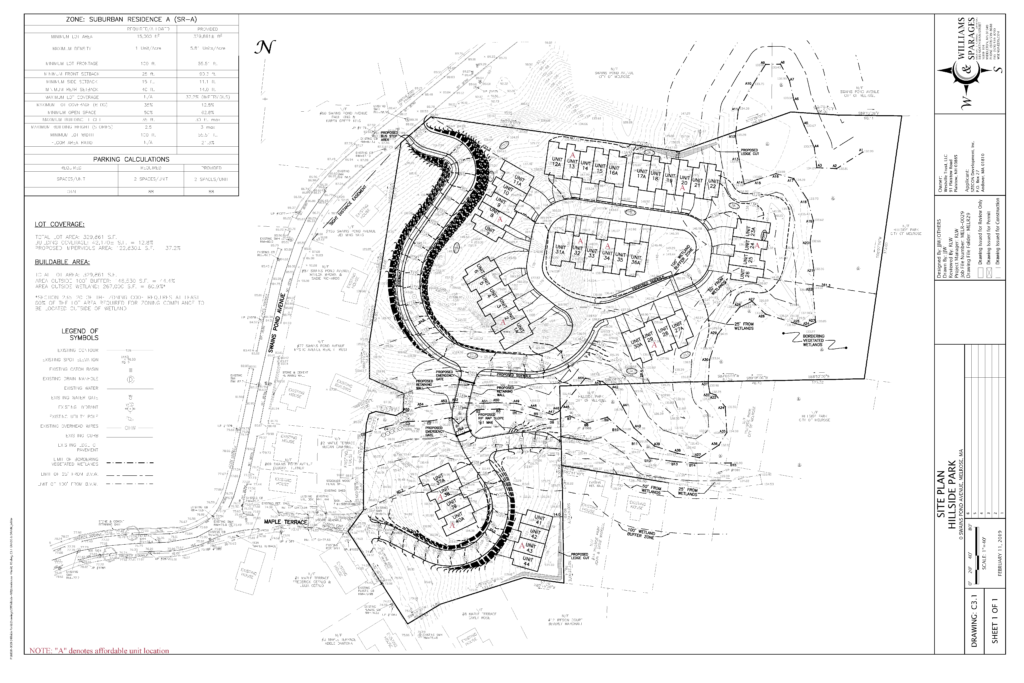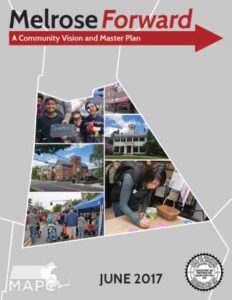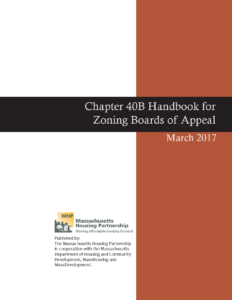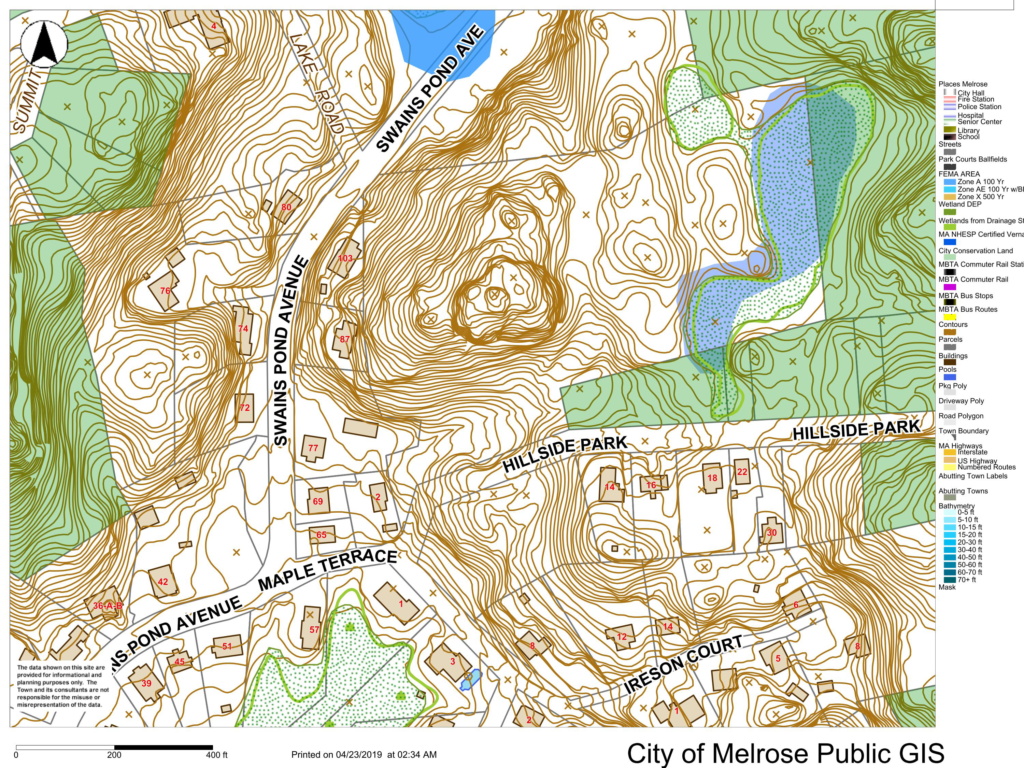This was originally posted on the Manisha for Melrose website, as well as in local media on April 22, 2019. It references a proposed housing development, whereby the developer was seeking approval through 40B, a Massachusetts “anti-snob” zoning law intended to allow higher density housing development in cities and towns that did not meet the state’s criteria for adequate provision of affordable housing listed on an official Subsidized Housing Inventory. Developers could bypass local zoning restrictions so long as their project included a specific percentage of deed restricted affordable housing. The challenge with this proposal was that the proposed location for this housing was in an environmentally sensitive location, isolated from convenient access to local amenities, and not very close to public transit. As both an advocate for and expert in affordable housing and smart growth development (growth in areas proximate to transit and with ecological conservation in mind), I took the opportunity to articulate the issues at hand for the public so they could be more informed in their own advocacy, one way or the other. I’ve included it here for archival purposes, since the Manisha for Melrose site is no longer active. I removed many of the hyperlinks to local ordinances, bus routes, and other references in the original post since most would be outdated now.
Recently, the City of Melrose received a Site Approval Notification from MassHousing regarding a proposed 44 townhouse construction project under Chapter 40B at Swains Pond Avenue and Hillside Park. This proposal is an opportunity to spur us into action as a community. It raises important concerns regarding conservation of environmentally sensitive areas, as well as a call to action for us to work towards meeting local housing needs.

Site Plan – ecological concerns and circulation: The proposed development would require waivers from our Slope Protection and Wetlands Protection ordinances, among numerous other waivers. The proposed site plan shows buildings on the steepest portions of the site. One of the buildings on the site plan appears to be within the 100 foot wetland buffer zone, though that was not indicated in the development summary and should be verified by MassHousing and the City of Melrose to be certain. The development summary does indicate that a proposed emergency access road adjacent to Maple Terrace will cross an intermittent stream in the wetland buffer zone, and the developer proposes gating this road. Development in this environmentally sensitive area threatens to disturb habitats as well as create flooding and runoff issues, particularly as proposed in the current site plan. Circulation around the development for residents and visitors is limited by gated access – while the gate could mitigate disturbance of the wetlands area, it limits the potential for the proposed development to be integrated into the surrounding neighborhood, and reduces the opportunity for creating a neighborhood feel within the 9-building development. Transit access and proximity to jobs, services, and commerce: The site has some transit availability though it is not in close proximity to a rapid transit station – it’s about 0.3 miles from the Lebanon Loop stop on the 106 bus, which provides access to Malden Center and Wellington MBTA stations on weekends and in the morning and late afternoon/evening on weekdays. The site is within a short drive of Route 1 and commercial areas in Malden and Melrose, but access to these areas is limited by transit or walking. Development of this scale within walking distance of a rapid transit station and near jobs, services, and commercial areas would be preferable, and the City has adopted zoning that would accommodate such development. Subsidized Housing Inventory: If one of the benefits for the community with a 40B development is progress towards meeting the statutory minimum of 10% of local housing units that count on the Subsidized Housing Inventory (SHI), this proposal does not meet that criteria. According to the September 2017 SHI, we are at 8%. Because the proposed project is a homeownership project rather than a rental project, only the 11 affordable units would count towards the SHI. If this were a rental project, all 44 units would contribute to the SHI. As a result, this project would have a negligible effect on progress towards our 10%. The proposal, while quite large for the area where it is proposed, isn’t large enough to provide us with relief from additional 40B applications in the near term, either.

Promoting a Smart Growth Approach to Meet Housing Needs: This proposal raises concerns regarding how we will invest in our community going forward. I believe we can conserve environmentally sensitive areas and meet our housing needs, and this proposal may force us to be more proactive on both fronts. Our leverage with this proposal is in the serious environmental challenges at this site, though it is not clear whether we would be able to stop it based on our own track record. Several years ago, this site had been approved for a much smaller subdivision development. More recently, the land was available for sale at auction. We lost the opportunity to purchase the land for conservation, which might be the ideal use for the site. But since it’s been approved for a smaller scale subdivision in the past, it may prove difficult to resist development there entirely, though we can make an argument regarding the scale of the development. Going forward: let’s look out for opportunities to protect environmentally sensitive land and water resources by purchasing critical properties for conservation and through other mechanisms. But also, we need to meet our housing needs as well as our regional obligations. We recently improved our Affordable Housing Incentive Program, which will help us move towards meeting our affordable housing obligations and address demand for housing. A number of additional solutions were recommended in Melrose Forward: A Community Vision and Master Plan, both for land conservation as well as for housing development. Some of these include protecting conservation lands, acquiring critical unprotected parcels, changing zoning to allow for more in-law apartments and accessory dwelling units, establishing an affordable housing trust, and preparing a Housing Production Plan.

Retirees looking to downsize but hoping to stay in Melrose, low-income veterans who served our country, community members facing potentially unaffordable rent increases, prospective homeowners looking to move to or within Melrose, and many others are all facing a very tough housing market with very few options available. Our community is well-located — we’re in Metro Boston but offer suburban conveniences – which will mean home values will likely always be high here. But tight supply, locally but also across the region, is inflating prices and causing more households to feel burdened by their monthly payments. Let’s work together to push solutions that will allow for housing in suitable locations, well integrated into their surrounding neighborhoods, close to transit, services, and commerce. How to Advocate and Learn More: Chapter 40B is the state’s comprehensive permit law that provides developers with the opportunity to build housing that bypasses local zoning regulations, so long as the proposed development includes a specified percentage of subsidized housing affordable to low- and moderate-income households. We are in a tough spot because we as a city have not met our obligations with regards to a minimum level of affordable housing, which means a developer can bypass local zoning in order to develop affordable housing.As a community, we have until May 1 to submit comments to MassHousing. I encourage community members to review the materials made available by the City’s Office of Planning and Community Development. The Housing Toolbox has a number of great resources useful for community conversations around 40B in particular and housing issues in general. Some documents that may be useful include this Chapter 40B fact sheet and the Chapter 40B Handbook for Zoning Boards of Appeal. If you wish to contact MassHousing, include “Attention: MH ID No.1015” in your email or letter. As always, you are welcome to copy city officials, including the entire Board of Aldermen at [group email for all Aldermen], or if you wish, reach out to me specifically at [my city email].
Manisha Bewtra, Alderman-At-Large & Candidate for Mayor
